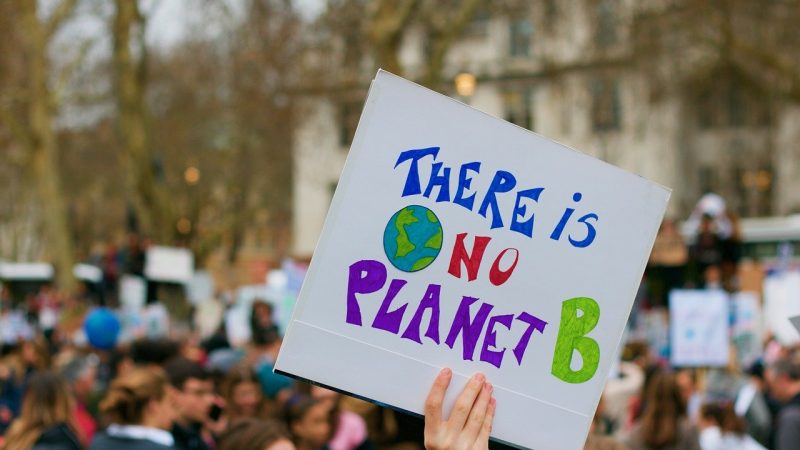Caroline Lucas is calling for a paradigm shift in economic policy to prioritise environment, wellbeing, equality and resilience over GDP growth

Fifty three years ago, Robert Kennedy gave a speech at the University of Kansas during his campaign for the presidency.
He spoke about Vietnam, about poverty and about racial inequality. But it’s what he said about the economy that has resonated through the decades since then.
It was his searing criticism of Gross National Product as a measure of America’s success.
“The mere accumulation of material things”, Kennedy explained, measured air pollution and jails, armoured cars to police the streets, nuclear warheads and weapons, and the destruction of forests. What it did not measure was the health of children, the quality of education, or compassion, courage, wisdom or learning.
In other words, he said, gross national product “measures everything in short except that which makes life worthwhile.”
Yet GDP, and more importantly GDP growth, remains the key indicator of the UK’s national economic progress. It dominates headlines, drives short-term thinking and is pursued with a dangerous fixation by the Treasury. It is also helping to fuel an accelerating climate crisis and destroy the natural world which we all depend on.
A recent UN climate science report warned that a post-pandemic economic stimulus focused primarily on growth would jeopardise the goals of the Paris Agreement on climate.
The Treasury-commissioned Dasgupta Review on the Economics of Biodiversity called for an urgent and transformative change in how we measure economic progress, with Professor Partha Dasgupta saying at the report’s launch that GDP is “totally unsuitable for judging the progress of economies over time”.
As an economic model, continuous GDP growth clearly isn’t working. It needs to change to one whose primary goal is the health of people and planet, not short-term profit and the ongoing extraction of limited resources with no real regard for the environmental consequences.
This isn’t a new idea and it’s what most people want. Six months into the coronavirus pandemic, two thirds of people surveyed as part of a Reset inquiry by a cross party group of MPs said Government should prioritise people’s health and wellbeing above economic growth.
It is designed explicitly to focus on people’s needs and enhance their health and wellbeing and the natural world we depend on. Only one in five thought GDP growth should remain the Government’s main economic goal.
Even the OECD has warned of the social and environmental harms caused by our growth obsession – and called for a paradigm shift in economic policy to prioritise environment, wellbeing, equality and resilience instead.
A wellbeing economy offers a practical and positive alternative. It is designed explicitly to focus on people’s needs and enhance their health and wellbeing and the natural world we depend on. It would be based on key principles of fairness, compassion and community – values we all share.
The pandemic has highlighted many of the failings of our current economic system: the fact that the most critical workers are often paid the least; health and social inequalities; the financial insecurity facing millions of people in Britain; the hollowing out of local economies in past decades which has left local communities especially vulnerable to shocks like coronavirus.
It’s also given us a unique opportunity to redesign how we run our economy and to pivot to a better way.
This is an opportunity we must take. We cannot continue with our current approach to economic progress when it is driving the destruction of the natural world and fuelling an accelerating climate and ecological emergency.
This shift to a wellbeing economy is already happening elsewhere in the world. New Zealand’s 2019 budget focused on wellbeing above GDP growth, Scotland and Wales are members of the Wellbeing Economy Governments Alliance, and cities like Amsterdam are embracing the principle of doughnut economics, where people’s needs are met within the planet’s natural limits, as they rebuilt their economies in the wake of coronavirus.
We all want to build back better from coronavirus. We can do that by setting aside GDP growth as the key target of government policy-making and making wellbeing our main economic goal – of people, communities and our natural world. This could be transformational for our working lives too – not just green job creation but quality too, with more jobs that help meet society’s fundamental needs.
With the UK hosting the UN climate summit, COP26, this year, we can’t go on ignoring the economic elephant in the room, blocking our way out of the climate crisis. Embracing a wellbeing economy would demonstrate the “climate leadership” the Prime Minister so often boasts of, and would echo around the world with a far greater impact because it would come in the year we host that vital climate summit.
We can all play our part in this, and start by signing the Wellbeing Economy petition.
To reach hundreds of thousands of new readers we need to grow our donor base substantially.
That's why in 2024, we are seeking to generate 150 additional regular donors to support Left Foot Forward's work.
We still need another 117 people to donate to hit the target. You can help. Donate today.



